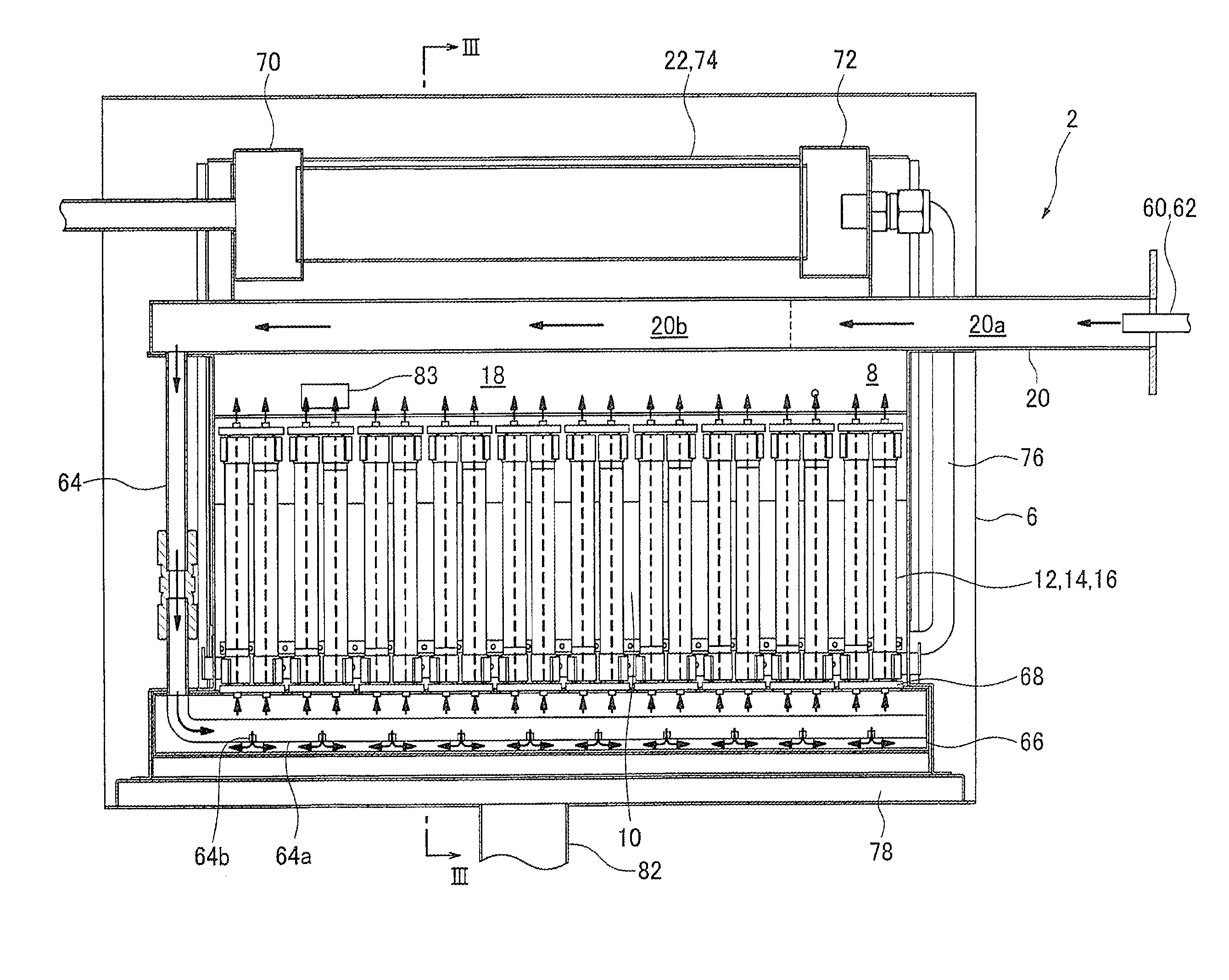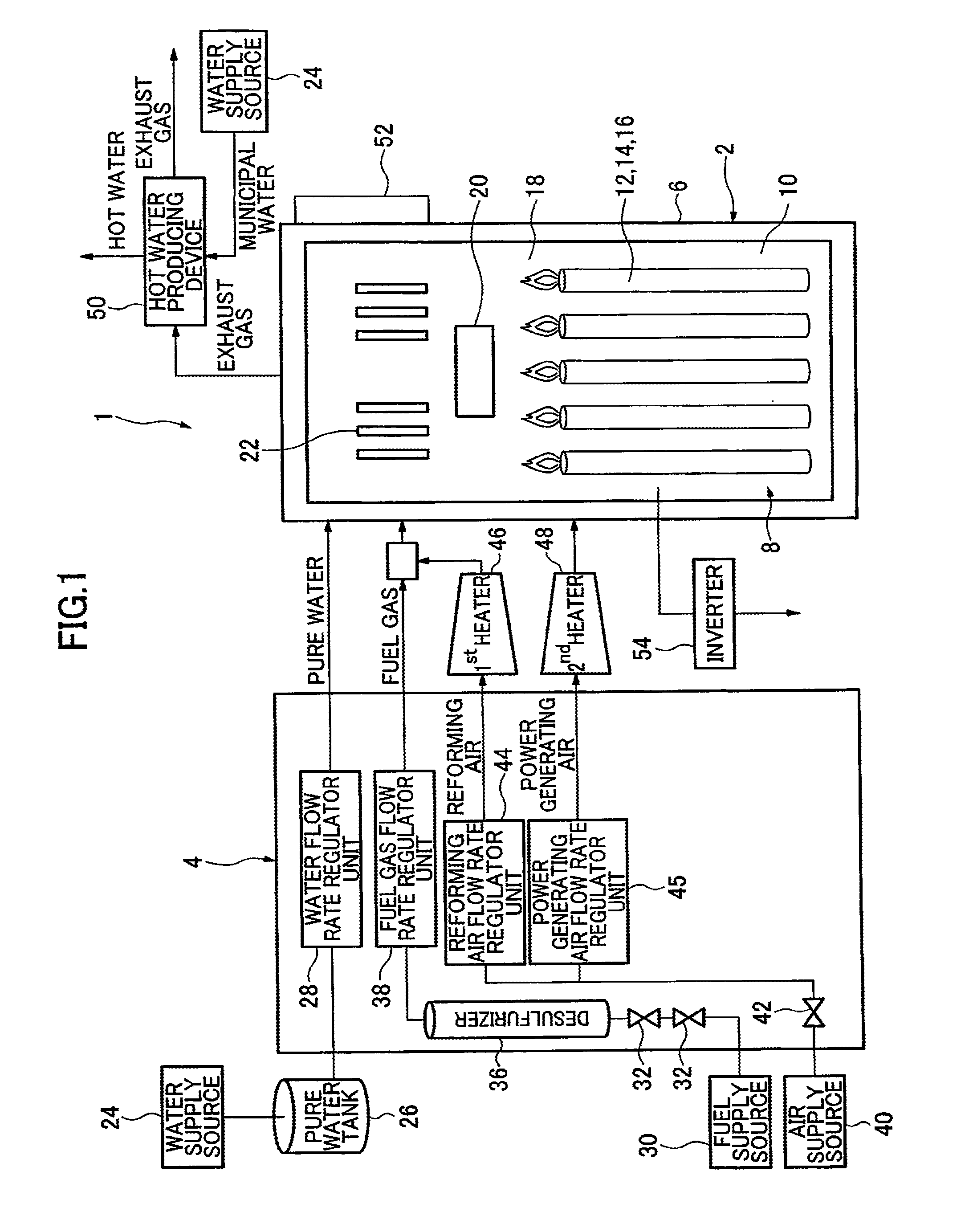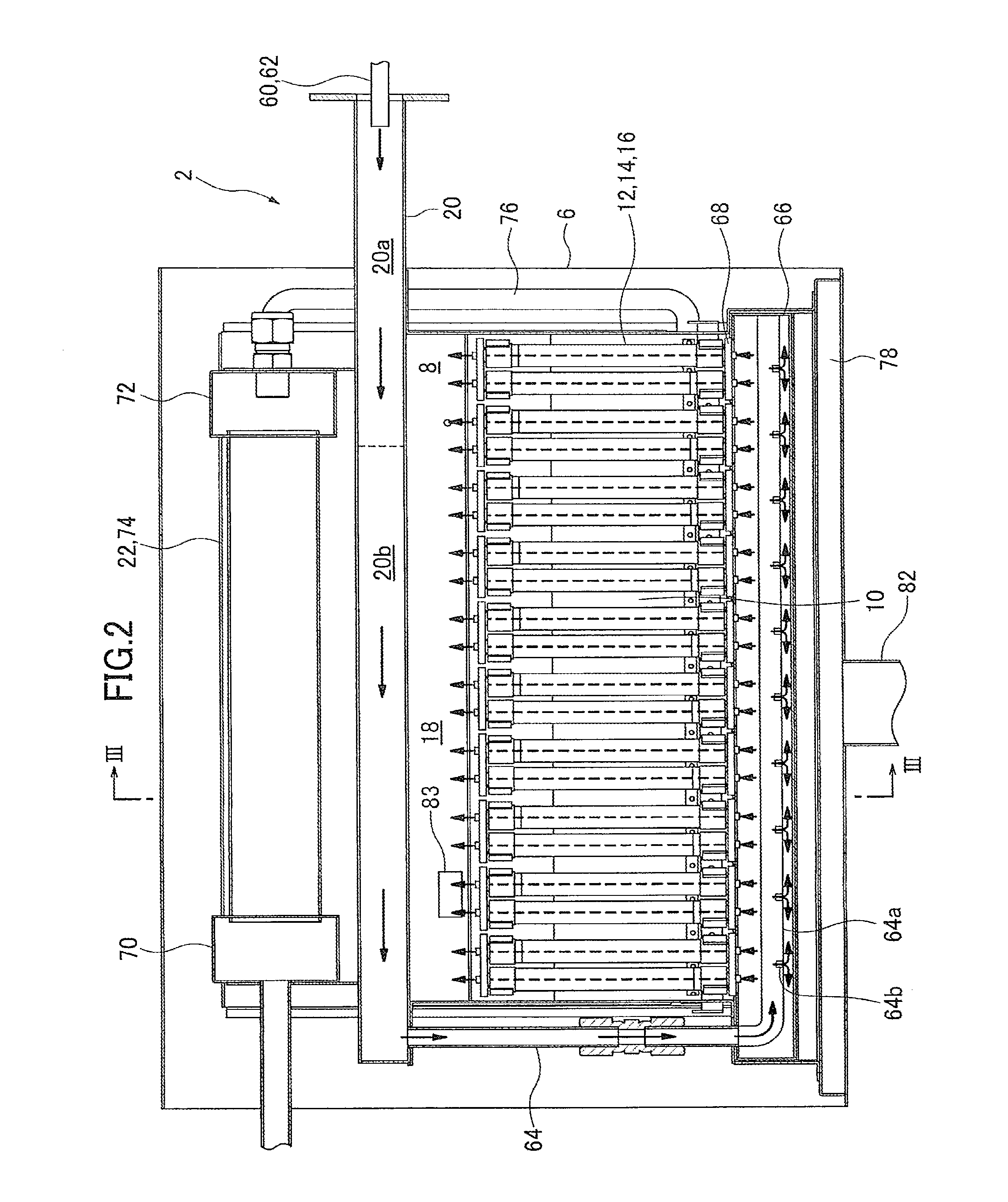Method for Producing Cerium-Based Composite Oxide, Solid Oxide Fuel Cell, and Fuel Cell System
a composite oxide and solid oxide technology, applied in the direction of cell components, electrochemical generators, electrolytes, etc., can solve the problems of reducing the strength of the oxide layer, breaking of the cerium-based composite oxide layer, so as to suppress the variations in the expansion and contraction rate of the ceria crystalline particles upon oxidation and reduction
- Summary
- Abstract
- Description
- Claims
- Application Information
AI Technical Summary
Benefits of technology
Problems solved by technology
Method used
Image
Examples
example
Preparation of Cerium-Based Composite Oxide
[0084]A raw material solution was prepared by mixing aqueous solutions of cerium nitrate and lanthanum nitrate at the ratio of Ce:La=60:40 (mole ratio). Further, an amount of the raw material solution corresponding to 100 g in terms of (CeO2)1-x(LaO1.5)x was diluted with pure water to a solids content of 10% by weight.
[0085]Next, a 100 g / L aqueous solution of ammonium hydrogen carbonate was added to the raw material solution with stirring at 25° C. to obtain a Ce—La based metallic salt. Then, a 100 g / L aqueous solution of ammonium hydrogen carbonate was added to the Ce—La based metallic salt with stirring, and heat treatment was performed at 80° C. and atmospheric pressure. Thus, a slurry was obtained in which an amount of the Ce—La based metallic salt corresponding to 100 g in terms of (CeO2)1-x(LaO1.5)x was dispersed. It should be noted that heat treatment time was appropriately changed for each of the raw materials shown in table 1.
[0086...
PUM
| Property | Measurement | Unit |
|---|---|---|
| operating temperatures | aaaaa | aaaaa |
| Raman shift | aaaaa | aaaaa |
| Raman shift | aaaaa | aaaaa |
Abstract
Description
Claims
Application Information
 Login to View More
Login to View More - R&D
- Intellectual Property
- Life Sciences
- Materials
- Tech Scout
- Unparalleled Data Quality
- Higher Quality Content
- 60% Fewer Hallucinations
Browse by: Latest US Patents, China's latest patents, Technical Efficacy Thesaurus, Application Domain, Technology Topic, Popular Technical Reports.
© 2025 PatSnap. All rights reserved.Legal|Privacy policy|Modern Slavery Act Transparency Statement|Sitemap|About US| Contact US: help@patsnap.com



